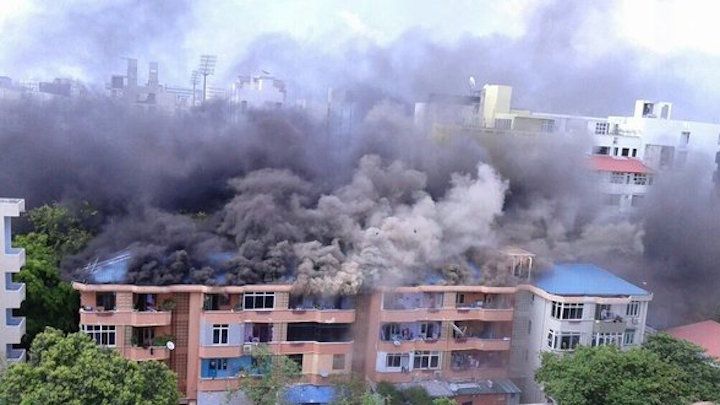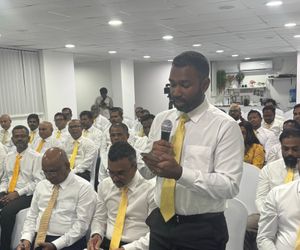Sinamalé fire prompts building safety concerns

23 Mar 2016, 09:00
A fire that broke out in a public housing flat in Malé on Tuesday afternoon has left two family homes temporarily unlivable as residents claim that the flats were unsafe for habitation.
The fire started in the storeroom of flat number 14-14 in the Sinamalé housing complex and spread rapidly to the adjoining flat. A family of four adults and three children have been forced out of their home.
The authorities have yet to finalise a formal assessment, but a fireman from the Maldives National Defence Force at the scene said the military’s fire and rescue service suspect an electrical short caused the fire.
The fire did not cause any injuries and was put out in about an hour.
Become a member
Get full access to our archive and personalise your experience.
Already a member?
Discussion
No comments yet. Be the first to share your thoughts!
No comments yet. Be the first to join the conversation!
Join the Conversation
Sign in to share your thoughts under an alias and take part in the discussion. Independent journalism thrives on open, respectful debate — your voice matters.




